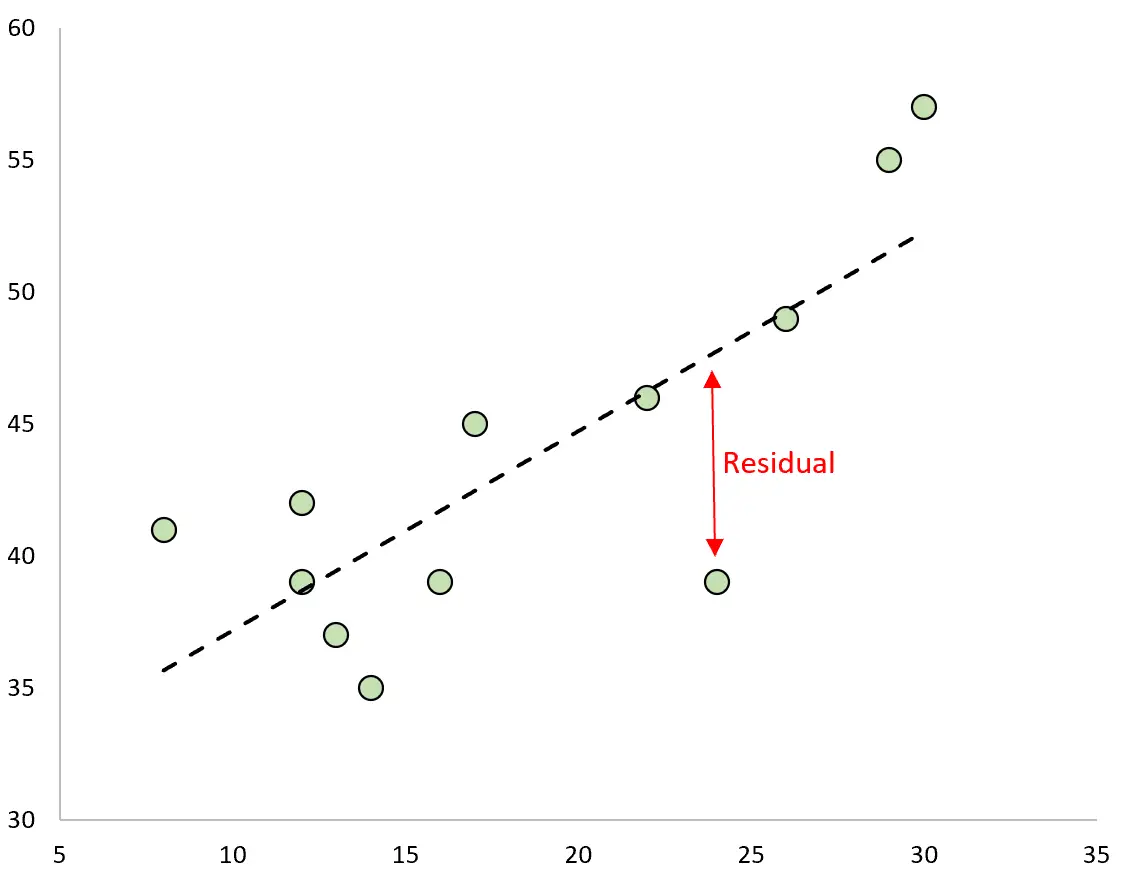如何在 python 中计算标准化残差
残差是回归模型中观测值与预测值之间的差异。
计算方法如下:
残差 = 观测值 – 预测值
如果我们绘制观测值并叠加拟合回归线,则每个观测值的残差将是观测值与回归线之间的垂直距离:

我们经常用来识别回归模型中的异常值的一种残差称为标准化残差。
计算方法如下:
r i = e i / s(e i ) = e i / RSE√ 1-h ii
金子:
- e i :第 i个残基
- RSE:模型的残差标准误差
- h ii :第 i 个观测值的上升
在实践中,我们经常将绝对值大于 3 的任何标准化残差视为异常值。
本教程提供了如何在 Python 中计算标准化残差的分步示例。
第 1 步:输入数据
首先,我们将创建一个在 Python 中使用的小数据集:
import pandas as pd #create dataset df = pd. DataFrame ({' x ': [8, 12, 12, 13, 14, 16, 17, 22, 24, 26, 29, 30], ' y ': [41, 42, 39, 37, 35, 39, 45, 46, 39, 49, 55, 57]})
步骤 2:拟合回归模型
接下来,我们将拟合一个简单的线性回归模型:
import statsmodels. api as sm
#define response variable
y = df[' y ']
#define explanatory variable
x = df[' x ']
#add constant to predictor variables
x = sm. add_constant (x)
#fit linear regression model
model = sm. OLS (y,x). fit ()
步骤 3:计算标准化残差
接下来,我们将计算模型的标准化残差:
#create instance of influence influence = model. get_influence () #obtain standardized residuals standardized_residuals = influence. reside_studentized_internal #display standardized residuals print (standardized_residuals) [ 1.40517322 0.81017562 0.07491009 -0.59323342 -1.2482053 -0.64248883 0.59610905 -0.05876884 -2.11711982 -0.066556 0.91057211 1.26973888]
从结果中我们可以看到,没有一个标准化残差的绝对值超过 3。因此,没有一个观测值看起来是异常值。
步骤 4:可视化标准化残差
最后,我们可以创建一个散点图来可视化预测变量值与标准化残差的关系:
import matplotlib. pyplot as plt
plt. scatter (df.x, standardized_residuals)
plt. xlabel (' x ')
plt. ylabel (' Standardized Residuals ')
plt. axhline (y=0, color=' black ', linestyle=' -- ', linewidth=1)
plt. show ()